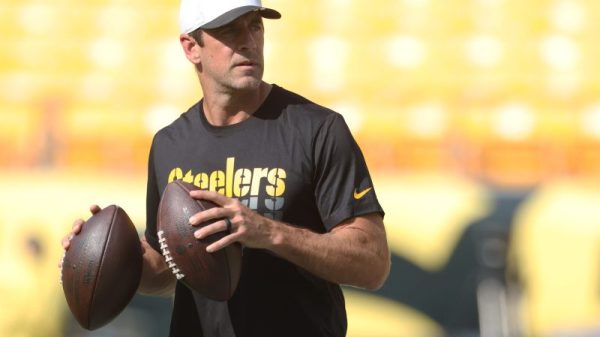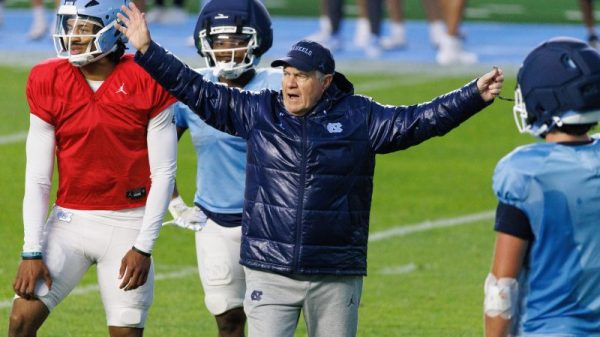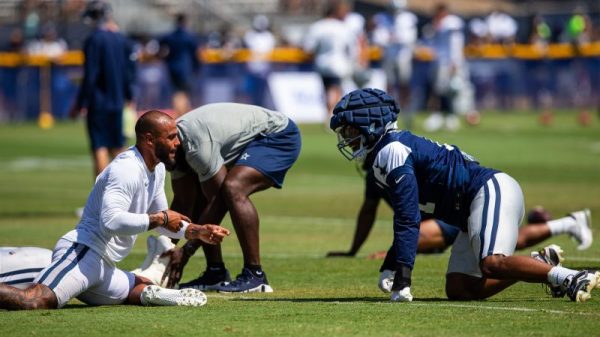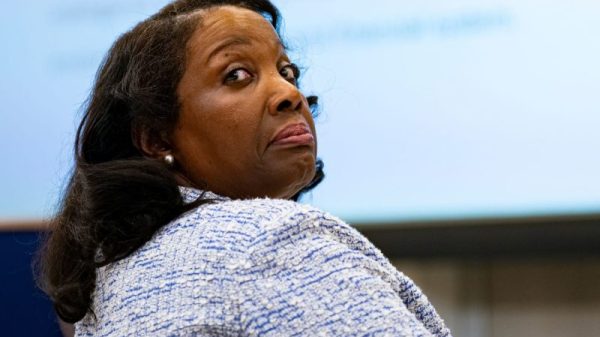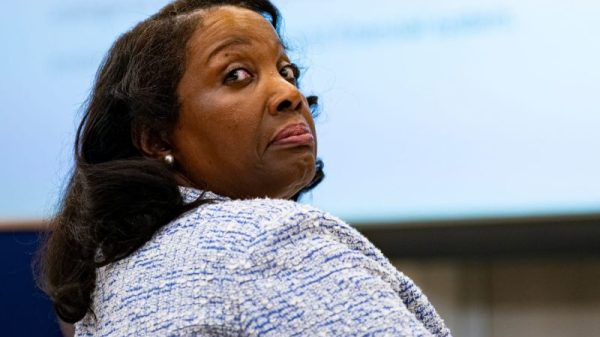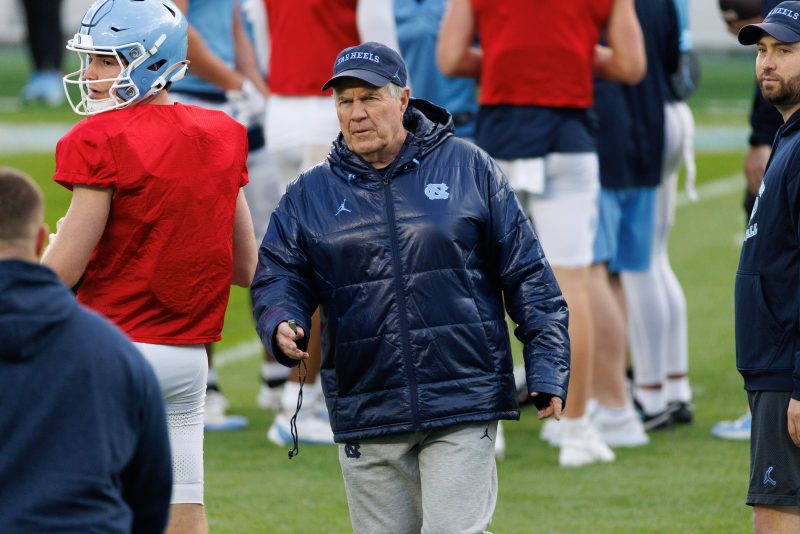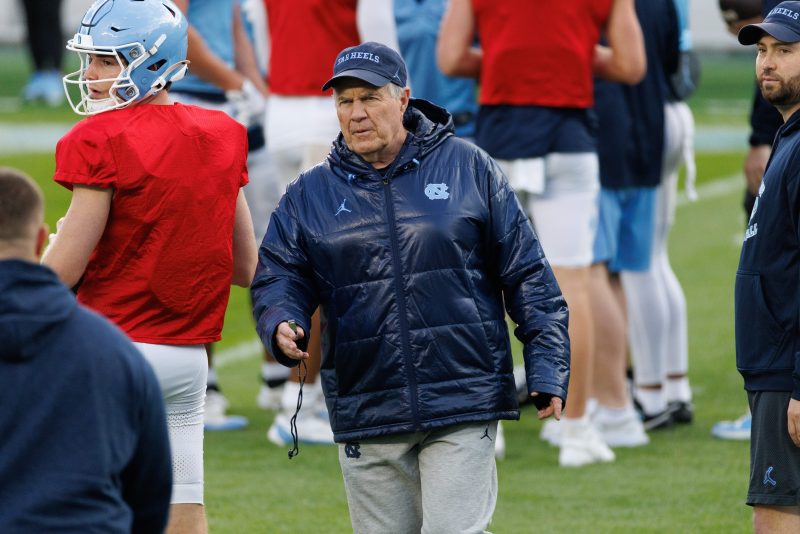
It’s not exactly an audacious experiment in college football.
Pete Carroll overcame what had been a middling career as an NFL head coach to build a powerhouse at Southern California. Nick Saban experienced minimal success over two seasons with the Miami Dolphins before returning to Alabama and forming an unforgettable dynasty. Jim Harbaugh won at Stanford, reached a Super Bowl with the San Francisco 49ers and then won a national championship at Michigan.
But not a single one of these high-profile coaches — and no one to ever coach in the NFL, really — can touch Bill Belichick’s Canton-worthy résumé. The six-time Super Bowl champion may not have left the New England Patriots as the winningest coach in NFL history, but his spot is secure on the sport’s coaching Mount Rushmore.
As he embarks on a new challenge against the backdrop of his wildly successful past, how Belichick fares in his first year as the head coach at North Carolina is the biggest storyline of the 2025 season, dwarfing Ohio State’s quest for a repeat and the never-ending back and forth between the SEC and Big Ten.
And as the Tar Heels head into Monday night’s opener against TCU, the biggest question surrounding Belichick asks what degree of achievement would paint his tenure a success. Within that stands an even more piercing query: Is there anything Belichick can do in Chapel Hill that would bolster, not diminish, his status as a coaching legend?
The answers to these questions and more will shape the Belichick era, which promises to be one of the most closely watched and scrutinized coaching tenures in college football history:
Can Bill Belichick and North Carolina win in 2025?
The advent of the transfer portal and the redshirt-free transfer has changed the way new coaches approach their debut seasons, speeding up the process of roster management by allowing these new hires to perform dramatic roster overhauls in a single offseason.
Belichick has embraced that opportunity by bringing in roughly 70 new players, 40 through the transfer portal and another 30 as traditional first-year recruits. One high-profile addition is former South Alabama transfer quarterback Gio Lopez, named last week as the Tar Heels’ starter.
“I think we have an explosive offense and the opportunity to be really good,” said Lopez.
Picked eighth in the preseason ACC media poll, the Tar Heels will face just two non-Power Four teams, Charlotte and Richmond, during the regular season. The Tar Heels round out non-conference play with TCU and Central Florida from the Big 12. Belichick’s ACC debut will come in early October against overwhelming conference favorite Clemson.
It’s worth noting that Belichick is not walking into a losing situation: North Carolina made a bowl game in all six of former coach Mack Brown’s years, though the program was never able to capitalize on a fast start to his tenure.
The expectations for Belichick’s debut season should be at a minimum to maintain that bowl streak, putting together at least six wins by taking advantage of the lesser opponents on the ACC schedule and winning three games out of conference play.
What should not be expected is an appearance in the College Football Playoff. If winning the ACC outright is a pipe dream, earning an at-large playoff bid is just slightly less ridiculous given the Tar Heels’ recent and not-so-recent history, the drastic offseason changes and what appears to be the lack of talent and depth needed to make a legitimate run at the 12-team field.
How important is the TCU game for UNC?
It’s vital in two respects. For one, a win against what is expected to be one of the top teams in the Big 12 would frame the Tar Heels as a potential ACC contender and strongly suggest the 2025 team is capable of doing more than earning an invitation to a second-tier bowl game.
That won’t be easy. TCU is roughly a field-goal favorite heading into Monday night after winning nine games last season, a four-win rebound from an underwhelming 2023 season. The Horned Frogs went all the way to the national championship game in 2022, coach Sonny Dykes’ first season, before being engulfed by Georgia.
“I’ve been through a lot of opening days, and every one is the same in that there are some things you kind of feel good about and there are some other questions that you have,” Belichick said. “As things unfold, what you find out is how good you feel about the things you feel good about and how good you feel about the things you were worried about. And it’s not always the same.”
The Horned Frogs may still a bit of an unknown commodity — just like almost every team in this era of rampant player movement — but they’ve got nothing on UNC, which must just be the most hard-to-predict team in the Power Four.
More importantly, though, is the potential fallout from a lopsided loss. That would open Belichick to a torrent of schadenfreude-driven criticism that could threaten to quickly define his first season.
“However many people are here or not here, or however many hours they talk about us on a network show or don’t talk about it, is really not anything in our control,” he said. “It’s irrelevant to us. We’re trying to focus on what we can control and what helps us win.”
What would represent overall success for Bill Belichick?
His extensive background in roster management has clearly helped Belichick adapt to a landscape that in many respects mirrors the NFL model. While the roster size is nearly double the NFL cap, the ability to continue tweaking his personnel over the next one or two years could bring the Tar Heels more closely in line with the best programs in the ACC.
That’s if you believe in Belichick’s prowess as an evaluator and developer, though. That there is increased skepticism regarding this eye for talent stems from the New England Patriots’ shocking decline over his final few seasons. Another factor that can’t be ignored: Belichick went 249-75 as a head coach with Tom Brady as his quarterback and 83-104 without.
In the end, Belichick’s time at North Carolina should not be compared to his NFL experience but to the Tar Heels’ mediocre history. UNC has just eight seasons with double-digit wins in the modern era and has not won the ACC since 1980. On the other hand, though, he is making $10 million annually over the course of his five-year contract; there should be something to show for this investment.
Should he fulfill the duration of this deal — which is not a sure thing — whether the Belichick era is viewed positively will come down to these factors: Did he turn UNC into a legitimate ACC contender? Did he leave the program in a better place? Did his win totals steadily improve? Did he build the Tar Heels into something they haven’t been — a team that trades in the sleeping-giant label for concrete results?
These are manageable expectations for someone with Belichick’s history. But at this point, whether he meets or exceeds these goals is impossible to predict.
Why is Bill Belichick coaching at North Carolina?
And this might be the biggest question of all: Why, at 73 years old, did Belichick choose to embark on this strange, late-career twist?
That the NFL was disinterested is the biggest factor. Belichick might have also been inspired to bring his life in football full circle; he grew up around the college game, tagging along with his father, Steve, a longtime college assistant who was the backfield coach in Chapel Hill when Belichick was an infant.
There’s also a question of how invested Belichick is in making UNC his final coaching stop. The initial contract included a drop in buyout money from $10 million to $1 million last June 1, which would have conceivably allowed him to leave Chapel Hill to chase another NFL job after this season.
Belichick is 14 wins shy of Don Shula’s career record, and reports during his exit from New England and pursuit of another position indicated his motivation in standing alone atop the NFL wins list.
But with an NFL position unavailable, Belichick’s only real option to continue coaching in football was to explore college openings. That’s led to this: a remarkable marriage of NFL coaching royalty with what has long been one of the Power Four’s most underwhelming programs.
“We learn more every day. We’ll learn more every game,” he said. “We’re definitely gaining on the process and we’re growing, but it’s far, far from perfect. We’ll get better as we spend more time together.”



